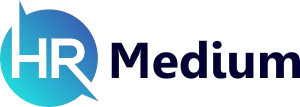The pandemic has taught decision-makers in organizations to truly value HR professionals but, as we adapt to our new ways of working, there are new roles this sector will need to fulfill.
The last decade, particularly 2020 – has seen dramatic shifts in the way we work, and more change is yet to come. With work evolution in every industry, HR job roles will change and new functions will shape up in the years to come. HR’s role within organizations will be central to this transformation in the changing work environment.
A recent study conducted by The Cognizant Center for Future of Work and Future Workplace has predicted that as a result of the pandemic, over 21 new jobs will be created within the next decade. Among the several new HR functions and roles likely to emerge, here are 4 new HR functions for the future of work, which are of high significance:
1. Employee wellness
For a long time, employee benefits such as cinema or concert tickets, table tennis in the office, or after-work drinks were very much seen as the benchmarks for providing employee happiness and satisfaction. The pandemic has highlighted that these sorts of benefits are only successful up to a point and that, in reality, something far more substantial is needed.
In the advent of the global pandemic, greater attention has been given to employee wellbeing over the last few years, and particularly the last year. A 2020 survey of HR professionals indicates that 43% believe it to be the greatest challenge facing HR departments.
To address employee wellbeing issues in 2021, there will be more HR jobs – to promote employee wellness and satisfaction. These include roles like wellness managers, wellbeing directors, health coaches, fitness coordinators, workplace environment architects, chief purpose planners, etc. Their responsibilities include addressing issues relating to general employee health and wellbeing through the creation of specific initiatives and programs, as well as spearheading the adoption of meaningful benefits, rather than just monetary.
2. Diversity and Inclusion
Over the years, various socio and political events have also forced organizations to consider the diversity and makeup of their teams. Notably, the ‘Black Lives Matter’ movement was (and continues to be) instrumental in highlighting the injustices and discrimination that minorities experience in day-to-day life.
Organizations often put too much emphasis on the ‘cultural fit’ within their teams and neglect aspects relating to ‘cultural add’ – that is, adding diversity to an organization. To avoid such occurrences, organizations should consider employing a human bias officer or a diversity officer. These roles are to identify where the biases may occur in a business and then address these concerns through relevant training programs.
Therefore, in the future, we can expect such roles in recruitment processes to ensure that candidates from various backgrounds are all receiving the same opportunity when it comes to applications.
3. Innovation in working style
Events over the last year have forced many organizations to reconsider their longer-term working habits and promote flexibility for all their employees in terms of remote working. It has become a norm and also a popular way of working for the years to come.
Although many organizations have been successful in implementing remote working policies successfully, there is still more to be done to ensure that employees have the right conditions to work in and that they don’t feel burned out.
In this regard, work from home (WFH) facilitator is a role that can establish working practices and provide the necessary support for remote working employees. Their responsibilities include the creation of procedures and processes to help and coach employees on how to build workstations anywhere that promote greater productivity.
4. HR data analytics and management
The pandemic has highlighted the need for HR departments to become more efficient and more data-driven. With teams working remotely, conducting timely surveys and gathering employee insights has been crucial in allowing HR teams to respond to key issues affecting employees.
Looking into the future, if HR teams are to play a role in organizational recovery, leveraging data will be essential, to ensure that they are meeting the requirements and expectations of all stakeholders.
In this context, the title of ‘HR Data Detective’ might prop up. Although suspicious, in reality, however, the purpose of this role is to investigate trends or inconsistencies in data, integrate all HR data, and ensure its ethical implementation within an organization.
Another role that could emerge is that of a Human Network Analyst. HR leaders should think about the importance of encompassing many different areas within HR, including:
- how teams work together in unison and effectively engage in communication
- whether an organization can successfully engage with remote employees
- areas relating to organizational diversity and employee wellbeing
To do this, human network analysts will rely on data analytics and artificial intelligence in the future – to gain perspective of the overall operational efficiency of an organization. Consequently, the data and insights they collect will then enable key decision-makers to identify areas for improvement and restructuring.
A New World of HR
The pandemic has therefore forced HR leaders to rethink their mission and propose new ways of working, learning, and collaborating across the enterprise. These new roles are the initial stepping stones to modernize HR and bring it up to speed with other business functions. As workforces continue to evolve drastically, HR departments need to adapt to their employees’ changing needs. This ultimately presents opportunities within the HR function itself to accelerate this progression.


